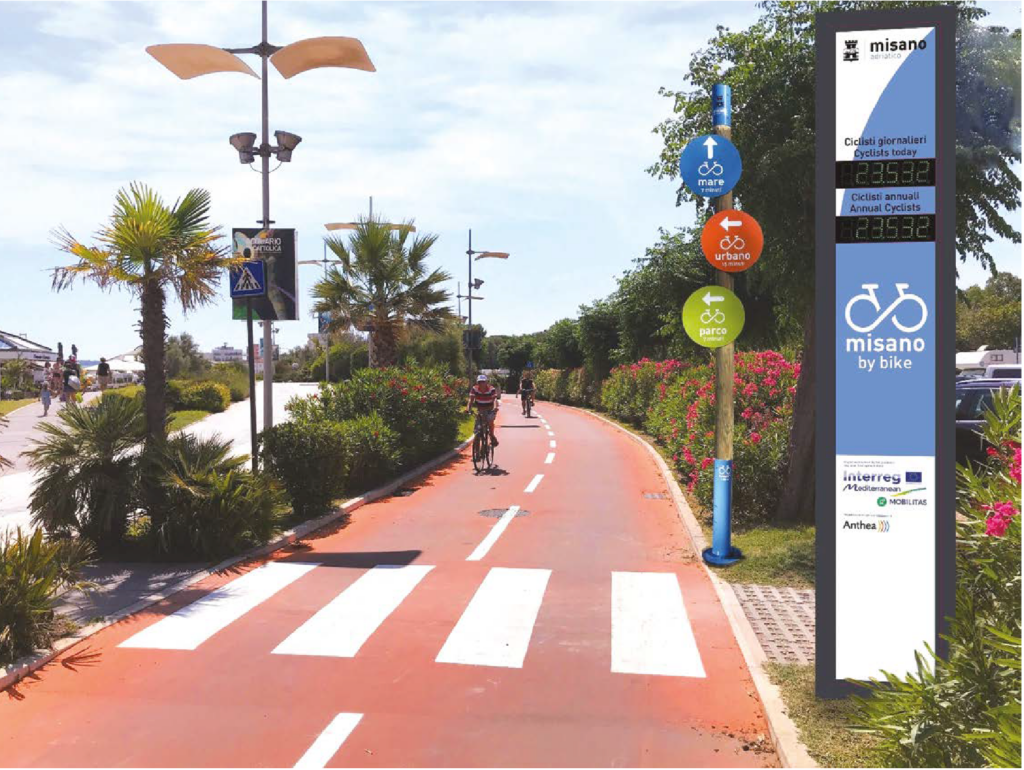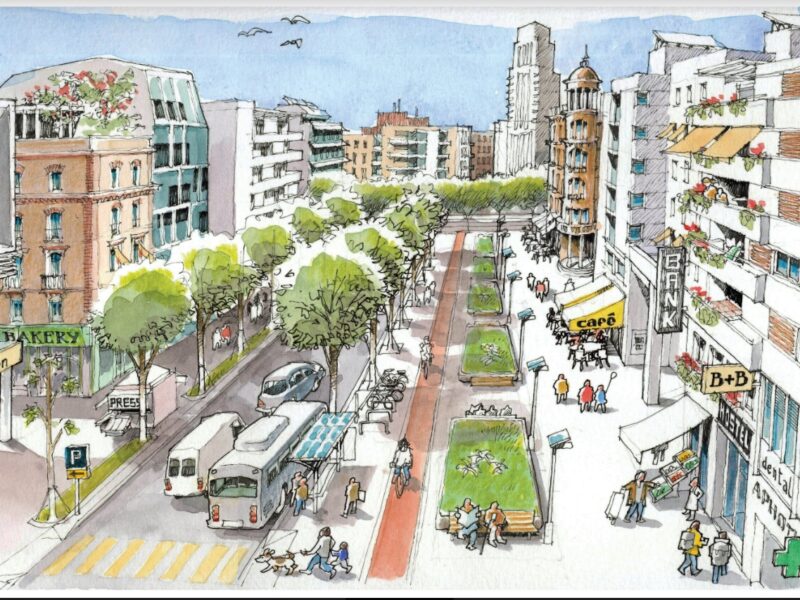MOBILITY
Bike lanes upgrade in Misano, Italy
The Municipality of Misano has designed a new network-monitoring and communication/information system for existing cycle and pedestrian paths. The objective is two-fold: 1. Sustainable mobility is achieved by coordinating initiatives, urban choices, communication and monitoring; 2. Enable people to make better use of active mobility.
Challenges addressed
- Boost and promote the use of the bicycle
- Provide better service to multiply number of users
- Improve bicycle paths
Main objectives
- Enhance sustainable mobility in the city
- Gather data about soft mobility users
- Improve bicycle paths to make them safer
- Improve bike lanes with signage and user-oriented information
External resources
MOBILITAS Handbook on sustainable mobility:
MOBILITAS project website:
https://mobilitas.interreg-med.eu/
Facts
Project type Bike-sharing system
Promoter REMEDIO Project
Collaborators Split Council
Start date 2019
Funding Interreg-MED
Website Split bike sharing system
Project description
MOBILITAS provided policy-makers and stakeholders with appropriate tools to deal with the effects of intensive tourism. Areas that receive important visitor flows suffer from excessive pressure on their mobility infrastructures and means of transport. This overload entails negative effects in terms of air pollution, noise, health, road unsafety, and therefore loss of city attractiveness. The temporality of the flows is also an aspect that needs to be considered since most of the visits are concentrated in summer or during specific events. The main objective of the project was to elaborate scenarios to enable policymakers and other stakeholders taking the right decisions regarding future transport planning. The general project’s outputs are: (a) the elaboration of Future Mobility Scenarios in 9 MED tourist regions (b) pilot actions using IT tools applied to sustainable tourism mobility and electric and sharing mobility solutions. (c) the elaboration of a Sustainable Mobility Handbook. Tourist cities are in a dichotomy between the benefits of tourist activity and alleviating the associated negative effects. This project provides the needed information and the appropriated tools to understand the effects of different policy choices regarding the environment.
Impact and results
- New road signs along the seafront have been studied and put into operation in an appealing and effective way, indicating the path to the sea, to urban areas, nature areas and to schools, characterized by different colours and symbols, positioned on wooden poles and highly visible iron supports;
- Two totems have been set up, with luminous displays, in the two access points of the waterfront cycle path to know exactly how many users there are, be they residents, hikers or tourists.
- At the beginning and the end of the promenade, a bike sharing station and a recharging station for e-vehicles have been installed, in harmony with the SUMP of the city.








